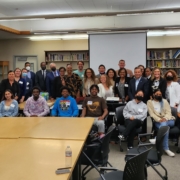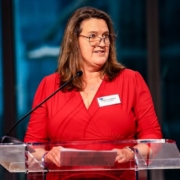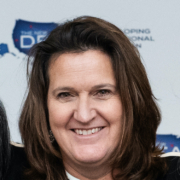Debbie Cox Bultan in the East Bay Times: Will Oakland Promise be the next Bay Area export?
The City of Oakland has launched an ambitious set of programs known as Oakland Promise that dramatically reimagine how to deliver high-quality education and support to students from cradle to career while opening doors of economic opportunity along the way.
These initiatives are expected to serve 30,000 young people through 2035 by establishing college savings accounts for infants and providing scholarships to Oakland public school students from low-income families. Related programs seek to close the digital divide and hire more Oakland residents as teachers.
At a moment when unprecedented federal resources are flowing to communities to invest in education, broadband and infrastructure, there is a unique opportunity for communities across the country to benefit from successful models. So this leads to two fundamental questions: Is Oakland Promise working, and is it practical to export it across the nation?
On the first question, the results so far are promising. According to the city:
• #OaklandUndivided has delivered 35,000 computers, provided 15,000 hotspots and responded to 18,000 tech-support requests, increasing home access to a computer, internet and tech support for students from low-income backgrounds from 12% pre-pandemic to 98% at the end of the 2020-21 school year.
• Teachers Rooted in Oakland has supported 30 teachers with housing and guaranteed income who in turn support over 13,500 students.
• Oakland Promise has put more students on track to succeed in college, with more than $17 million in scholarships and persistence supports invested so far, and 1,300 students paired with mentors. Encouragingly, 88% of participants have persisted to a second year of college.
Longer term, researchers at the nonpartisan and independent research organization NORC at the University of Chicago are studying Oakland Promise’s cradle-to-career approach and Brilliant Baby program, which provides college savings accounts and family financial coaching. The results will be critical to evaluating the lasting impact and success of Oakland Promise.
On the second question — can the program be exported — the answer is undoubtedly yes. Communities will need to evaluate what works and adapt the programs to meet their needs. State and local leaders recognize that communities can benefit from Oakland’s framework of addressing key obstacles that children face from birth through high school in a comprehensive way.
The hardest question is about resources. Oakland has done an amazing job of scaling its innovative educational initiatives from an initial $160,000 investment in a director of education to a $3 million pilot (funded with $1 million of city funds and $2 million from philanthropic sources) to a $125 million public-private partnership (which has the potential to unlock $3 billion in public resources).
Notably, this includes a significant investment from the city’s property owners through Measure AA, a local initiative championed by Mayor Libby Schaaf and approved by 62% of Oakland voters in 2018 that set a special $198 annual inflation-adjusted parcel tax on single-family homes.
Cities and states will have to study how Oakland’s approach can be made workable in their communities based on the public and private resources available
Yet, the boldness of Oakland Promise — a fundamental rethinking of how educational services are provided so that students from the earliest age have a growth and college mindset — is inspiring. It is energizing to see how challenges that have seemed insurmountable for decades can be overcome.
That is the true opportunity before us — using Oakland’s innovative model to change not just one community but dozens of cities and states across the nation.
Debbie Cox Bultan is CEO of NewDEAL and the affiliated NewDEAL Forum, which identifies innovative, state and local pro-growth progressive policies and which brought a delegation of officials from eight states to the Bay Area in August on a fact-finding mission about Oakland Promise. Anthony Daniels, a member of that delegation, is the youngest and first African American minority leader of the Alabama House of Representatives.












